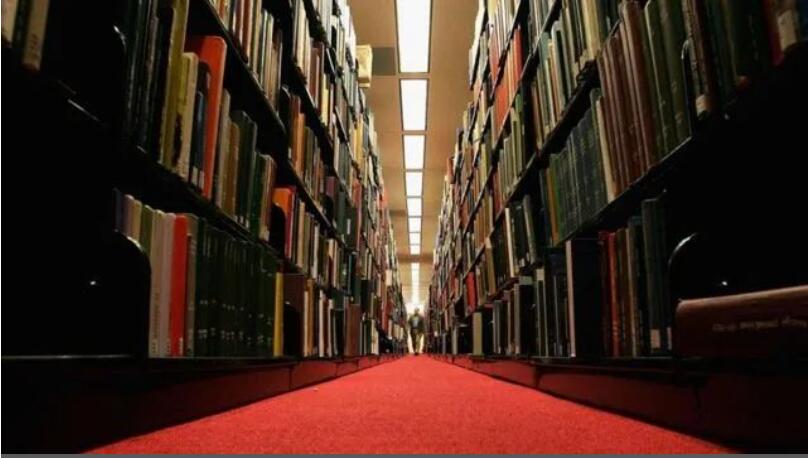How to be wiser如何才能变得更有智慧?
Wisdom is something that’s hard to define and yet somehow we know it when we see it. The wise people stay calm in a crisis. They can step back and see the bigger picture. They’re thoughtful and self-reflective. They recognise the limits of their own knowledge, consider alternative perspectives, and remember that the world is always changing.智慧难以界定,但不知何故,当我们看到它时却能够知道这就是智慧。智者在危机中能够保持冷静。他们可以退后一步,统观全局。他们深思熟虑,自我反省。他们认可自己知识的局限,考虑替代的观点,并牢记世界总在变化。
Wisdom mustn’t be confused with intelligence. Although intelligence helps, you can be intelligent without being wise. The wise people tolerate uncertainty and remain optimistic that even tricky problems do have solutions. They can judge what is true or right. It’s quite a list.智慧不能与智力混为一谈。虽然智力确实有益,但你可以聪明而并不智慧。智者容忍不确定性,并保持乐观,即使棘手的问题也能找到解决办法。他们可以判断什么是真实或正确的。这实在是卓越的品质。
So, how do you become wiser? Psychologists have been studying wisdom for decades, and they have good news for us. We can all make efforts to be wiser and we might even succeed.那么,人如何能变得更智慧?心理学家们已经研究智慧几十年了,他们有好消息给我们。我们都可以努力变得更有智慧,甚至可能成功。

The reasons that we might want to follow their advice go beyond the obvious benefit of gaining wisdom to make good decisions. Wise reasoning is associated with a whole lot of positives: higher life satisfaction, fewer negative feelings, better relationships and less depressive rumination, according to Igor Grossman of the University of Waterloo in Canada. He and his colleagues even found evidence that the wisest people might live longer. The wiser people were, the higher their levels of well-being, particularly as they got older. Intelligence made no difference to well-being, probably because IQ levels don’t reflect a person’s ability to foster good relationships or make decisions in everyday life.我们之所以愿意听从他们的建议,不单单是获得智慧能够做出明智的决定这一明显的益处。根据加拿大滑铁卢大学(University of Waterloo)的伊戈尔·格罗斯曼(Igor Grossman)的观点,明智的思考带来很多积极作用:更高的生活满意度,较少的消极情绪,更好的人际关系和更少的抑郁沉思,他和他的同事们甚至发现最有智慧的人会活得更长的证据。人越有智慧,幸福水平就越高,尤其是当他们年纪渐长时。智力对幸福感没有影响,可能是因为智商水平不能反映一个人在日常生活中培养良好关系或做出决定的能力。
Grossman is convinced that wisdom is not simply a stable trait that you either possess or don’t. If true, this is good news. It means that at least we’re wise some of the time.格罗斯曼深信,智慧并非简单地是一种要么有要么没有的稳定特质。如果这是真的,这是个好消息。这意味着,至少有些时候我们是明智的。
Think back to yesterday. What was the most challenging situation you faced in your day? And how did you work out what to do? Grossman put questions like this to the participants in his recent study. People wrote about being late for meetings because of the traffic or the arguments they had with families and colleagues. The researchers examined their styles of reasoning in order to assess their wisdom. Did they recognise that their knowledge was limited? Did they see any positives in what seemed on the face of it to be a negative situation? He found that some people appeared to be wise sages in one situation, but not in another. 回想一下昨天。你一天中面临的最具挑战性的情况是什么?你是怎么找出对策的?格罗斯曼在最近的研究中向参与者提出了这样的问题。人们写的是因为交通原因而导致会议迟到,或者与家人和同事的争论。研究人员检查他们的推理方式,以评估他们的智慧水平。他们是否认识到他们的知识是有限的?他们是否在表面看似被动的形势下看到积极的方面?他发现有些人在一种情况下似乎很明智,但在另一种情况下却并非如此。
So why the difference in different situations? People were wiser when they were with their friends. It made them more likely to consider the bigger picture, to think of other perspectives and to recognise the limits of their own knowledge. When people were alone they seemed to get so involved in a situation that they didn’t even think about alternatives.那么,为什么在不同的情况下会有差异?人们和朋友在一起时更有智慧。这使得他们更有可能考虑全局,思考其它观点,认识到自己知识的局限性。当人们独处时,他们似乎陷入了一种他们根本不考虑其它方案的局面。
This means wisdom might be more common than we think. “We are possibly all capable of some aspect of wisdom. It’s just not all the time,” says Grossman.这意味着智慧可能比我们想象的更为普遍。"我们都可能拥有智慧的某些方面。只是不是所有时候都有智慧,"格罗斯曼说。
Some people still displayed more wisdom than others and some were more foolish, but not across every situation. This provides hope. If we can be wise sometimes, maybe we can learn to be wise more often. And the finding that wise reasoning improves with age suggests we can get better at it.有些人仍然表现出比别人有更多的智慧,有些人更愚蠢,但不是在所有的情况下。这给人以希望。如果我们有时有智慧,也许我们可以学会更经常有智慧。明智的思考随着年龄的增长而不断改进,这一发现表明我们可以变得更好。
The question is how to do it. For Cornell University psychologist Robert Sternberg, wisdom is all about balance. A wise person is able to complete a mental juggling act – to balance the short-term with the long-term, self-interest with the interests of others, while considering all the options – adapting to the current situation, trying to shape it or looking for a new situation.问题是怎么做。对于康奈尔大学心理学家罗伯特·斯腾伯格(Robert Sternberg)来说,智慧就是平衡。一个明智的人能够仔细推敲——平衡短期与长期,个人与他人的利益,同时考虑所有的选择——适应目前的情况,试图制造或寻找一个新的局面。
Following Sternberg’s model, what you need to do is to remember to work out what all the different interests are in a given dilemma, both in the short and long-term and to pay attention to the changing environment and how it might be shaped.按照斯腾伯格的模式,你需要做的是记住在一个特定的困境下发现所有不同的利益是什么,无论是短期利益还是长期利益,并注意变化的环境以及环境如何形成。
In a kind of school of wisdom, Grossman has experimented with different strategies in the lab. People were taught to take a different perspective by imagining they were taking a bird’s-eye-view of the situation or as if they were watching events as a fly on the wall. The idea is to try to distance yourself from the immediate experience. Even talking about yourself in the third person can help. So when I have a dilemma, I should be asking, what would Claudia do? 在某种训练掌握智慧的学校里,格罗斯曼一直在实验室中试验不同的策略。人们被教会想象用一只鸟的视角看待环境,或者好像一只墙上的苍蝇一观察事件。这个想法是试图让自己远离眼当下的体验。即便用第三人称来谈论自己也很有帮助。所以当我进退两难时,我应该问克劳蒂娅会怎么做?
Sometimes we could take it a step further than speaking in the third person and actually ask someone else what they think we should do. We are often wiser about other people’s lives than about our own. One of my favourite studies on time perception involves the planning fallacy, the mistake that many of us make when we think we can finish a job far more quickly than we really can. Whether it’s attempting to redecorate your living room in a day or finishing a work project in an evening, we’re often disappointed when we fail. We tend to think that in the future we’ll have more time because we’ll be better-organised versions of ourselves. Sadly we probably won’t be.有时我们可以比用第三人称思考更进一步,切实地问别人他们认为我们应该做什么。我们往往对别人的生活比对自己的事情更为明智。我最喜欢的一项时间感知的研究是关于计划谬误(planning fallacy)的,这是一种我们很多人会犯的错误,我们往往认为我们能比实际所能更快地完成工作。无论是试图在一天内重新装修你的起居室,或是在一个晚上完成一个工作项目,当失败时我们往往会感到失望。我们倾向于认为未来我们会有更多的时间,因为我们会把自己组织得更好。然而可悲的是我们可能做不到。

But although we’re bad at judging our own time-frames, we’re much better at working out other people’s. In one study, students were asked to estimate when they were likely to finish an assignment and when other students would finish theirs. They were far better at guessing other people’s timings, because they took into account unpredictable interruptions such as getting flu or coming home to find the washing machine has flooded the kitchen. When it comes to our own lives, our natural optimism seems to stop us factoring in potential problems.但是,尽管我们不擅长判断自己的时间表,但我们能更好地处理其他人的问题。在一项研究中,学生被要求预估他们什么时候完成作业,以及其他学生何时完成他们的作业。在猜测其他人的时间时他们都做得更好,因为他们考虑到不可预知的干扰,比如得了流感或回家发现洗衣机让厨房发了大水。当涉及到我们自己的生活,我们天生的乐观似乎阻止我们考虑潜在的问题。
So can you set out to be wise? Yes, but there are an awful lot of factors to remember. You need to take into account that people will have different goals, priorities and responses to your own, across the short- and long-term. If you can juggle all that, you probably are showing wisdom. But the complexity shouldn’t stop us from trying. As Grossman told me, “It’s not that you suddenly become the next Buddha, but you do become a little bit wiser.”那么你能开始变得智慧吗?是的,但有相当多的因素要记住。你需要考虑人们在短期和长期时会有不同的目标、优先事项和对自己的反应。如果你能把这一切都仔细推敲,你就可能变得更有智慧。但复杂性不应该阻止我们尝试。正如格罗斯曼告诉我的:"不是你突然成佛,而是你只是变得更有智慧一些。"